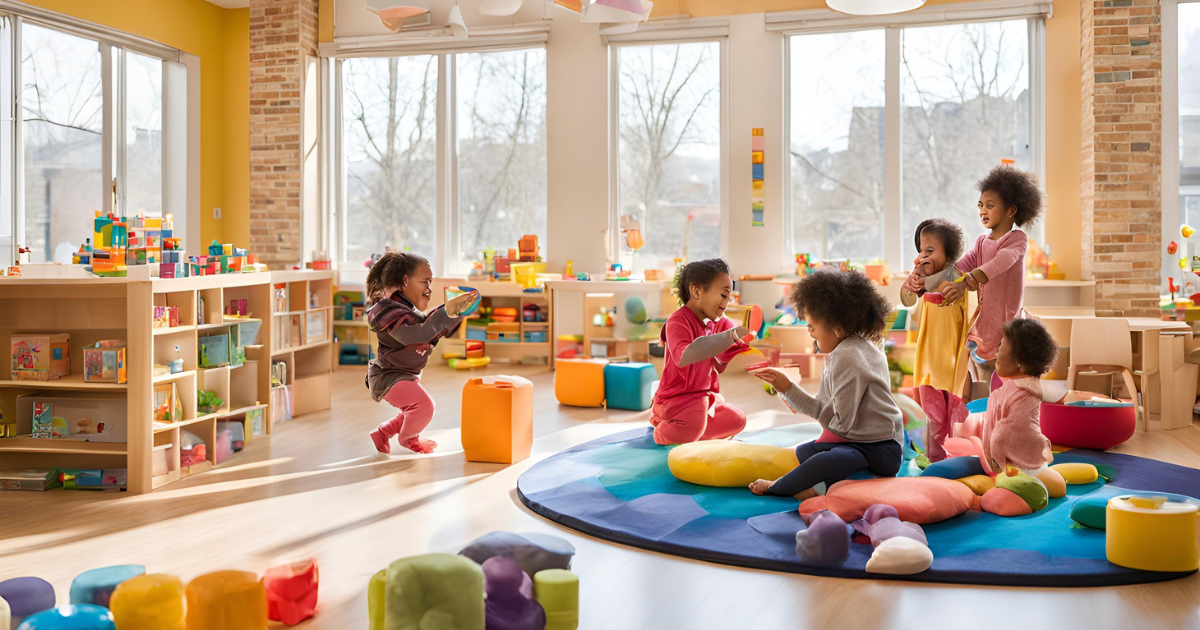Finding the perfect childcare solution for your family can feel like solving a complex puzzle. Whether you’re a new parent heading back to work, a busy professional juggling multiple responsibilities, or simply looking for a nurturing environment for your little one, making the right childcare decision is crucial. But with so many options out there, where do you even begin?
This guide is here to help! We’ll explore all the different types of childcare services, their benefits, key considerations, and practical tips to ensure you find a match that works for your family. By the end, you’ll feel confident and equipped to make an informed choice.
What Are Childcare Services?
Childcare services encompass a broad range of options designed to care for and support children, typically while parents are away at work or engaged in other activities. These services focus on creating a safe and stimulating environment that nurtures kids’ physical, emotional, and cognitive development.
Why Childcare Matters
The right childcare service does more than just watch your child—it plays an essential role in their growth. It gives children opportunities to socialize, learn new skills, and develop independence. And for parents, it provides the peace of mind to focus on their goals while their child thrives in a positive, caring environment.
Types of Childcare Services
Different families have different needs, and thankfully, there’s no shortage of options when it comes to childcare. Here’s an overview of the most common types:
1. Daycare Centers
Daycare centers are one of the most popular options for parents. These facilities focus on group care, with structured schedules and age-appropriate activities.
Pros:
- Socialization opportunity with kids of the same age
- Regulated environment with trained staff
- Typically offers a curriculum to support child development
Cons:
- Less flexible with schedules
- Larger groups may mean less personalized attention
Daycare centers are ideal for parents looking for a structured routine for their children. Many facilities also incorporate early education programs, giving little ones a head start on learning.
2. Home-Based Daycares
Run out of a caregiver’s home, these setups offer a more intimate childcare experience.
Pros:
- Smaller group sizes
- Home-like atmosphere
- Often more affordable than traditional daycare centers
Cons:
- May lack the structure or resources of a larger facility
- Regulations can vary depending on the caregiver
If you value a cozy, homely environment with fewer kids, this could be the right option for you!
3. Nanny Services
Want one-on-one care in the comfort of your home? Hiring a nanny provides that dedicated attention.
Pros:
- Highly personalized care tailored to your family’s needs
- Can help with household tasks like meal prep or laundry
- Flexible hours and schedules
Cons:
- Significantly more expensive than group care services
- Requires trusting a single caregiver
A nanny can feel like an extension of your family, offering an unparalleled level of care. However, it’s essential to screen candidates thoroughly and discuss role expectations up front.
4. Au Pair Programs
An au pair is a young person (often international) who lives with a host family to provide childcare in exchange for room, board, and a stipend.
Pros:
- Culturally enriching experience for your child and family
- Often more affordable than a full-time nanny
- Can provide flexible, in-home childcare
Cons:
- Potential adjustment challenges for both the au pair and the family
- May lack formal childcare training
Au pairs are great for families seeking a cultural exchange element in addition to childcare. Just be prepared to offer a warm welcome into your home!
5. Preschools
Preschools combine early education programs with childcare services for children ages 3 to 5.
Pros:
- Focus on school readiness and structured learning experiences
- Socialization and peer interaction
- Often includes fun, hands-on activities
Cons:
- Limited operating hours—working parents may need alternative arrangements
- Not suitable for very young children
Preschools are perfect for parents who want their kids to develop foundational academic and social skills before starting primary school.
Key Factors to Consider When Choosing Childcare
With so many options, how do you narrow down the best one for your family? Keep these factors in mind as you research and tour facilities:
1. Budget
Childcare services can be a significant expense. Determine your budget early and explore options that fit within it. Look for programs that offer sliding scale fees or government subsidies if cost is a concern.
2. Schedule Compatibility
Make sure your chosen childcare option aligns with your work hours and family schedule. If you work irregular hours, consider flexible options like nannies or au pairs.
3. Location
Proximity matters. Whether it’s close to home or work, a convenient location will save you precious time during drop-off and pick-up.
4. Child’s Age and Needs
Different types of childcare may be better suited for certain age groups or specific needs. For instance, a preschool program may be ideal for a 4-year-old, but a home daycare might suit an infant better.
5. Safety and Licensing
Always ensure the childcare provider adheres to state regulations and has proper licensing. Don’t hesitate to ask for background checks, certifications, and references for peace of mind.
6. Trust Your Instincts
Most importantly, trust your gut! If something doesn’t feel right, explore other options until you feel comfortable leaving your child in their care.
Questions to Ask a Childcare Provider
Before committing, ask potential childcare providers these essential questions:
- What’s your caregiver-to-child ratio?
- What qualifications and training do your staff members have?
- How do you handle emergencies?
- What does a typical day look like for the children?
- Are meals and snacks provided, or do I need to pack my own?
Pro tip: Visit the facility or meet with the caregiver in person to observe their interactions with children. This provides valuable insight into the environment and their caregiving style.
Tips for Transitioning Your Child to Childcare
Starting childcare can be a big adjustment for you and your little one. Here are a few ways to ease the transition:
- Start with short visits to get your child familiar with the new environment.
- Establish a consistent goodbye routine to provide reassurance.
- Pack a comfort item, like a favorite toy or blanket, to help them feel secure.
- Communicate openly with the caregiver about your child’s needs and preferences.
Before you know it, your child will be building friendships, learning new skills, and thriving in their new space!
What’s Next?
Choosing the right childcare service is a deeply personal decision, and there’s no one-size-fits-all solution. Take your time to explore your options, ask questions, and always trust your instincts.
If you’re feeling overwhelmed, you’re not alone. The key is to stay focused on your priorities and know that the right solution is out there.
Remember—your child deserves the best, and so do you. With the right childcare provider, both you and your little one can feel confident and supported every step of the way.
Happy exploring and good luck!












Leave a Reply